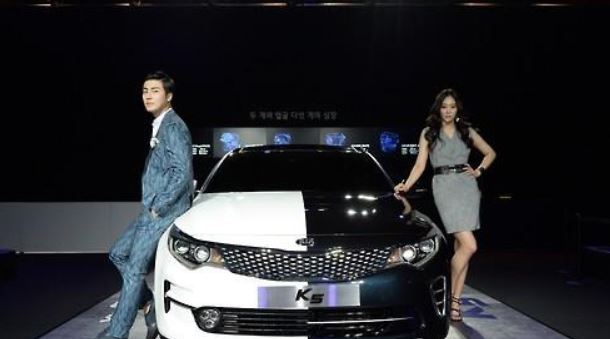South Korea's top carmaker Hyundai Motor Co. said Thursday it took the top spot in J.D. Power's Initial Quality Study for cars sold in China for a second consecutive year, despite its sales being hit hard by diplomatic rows between the two countries.
Hyundai Motor was able to retain its No. 1 position this year due to improved vehicle quality and services, beating 42 competitors, such as Volkswagen Group, Toyota Motor Corp. and Nissan Motor Co., the company said in a statement.
Hyundai hopes the achievement will help revive its lackluster sales in the world's largest vehicle market.
The maker of the Sonata sedan and the Santa Fe SUV topped the initial quality rankings because it was able to report the smallest number of problems, at 84 per 100 vehicles. It was followed by Hyundai's affiliate Kia Motors Corp. with 88 problems, Japan's Mazda Motor Corp. with 96 and Renault with 97, it said.
Hyundai Motor was able to retain its No. 1 position this year due to improved vehicle quality and services, beating 42 competitors, such as Volkswagen Group, Toyota Motor Corp. and Nissan Motor Co., the company said in a statement.
Hyundai hopes the achievement will help revive its lackluster sales in the world's largest vehicle market.
The maker of the Sonata sedan and the Santa Fe SUV topped the initial quality rankings because it was able to report the smallest number of problems, at 84 per 100 vehicles. It was followed by Hyundai's affiliate Kia Motors Corp. with 88 problems, Japan's Mazda Motor Corp. with 96 and Renault with 97, it said.

Three models from Hyundai and one from Kia topped rivals in their respective segments -- Hyundai's Verna subcompact, Langdong (or Elantra) compact and Tucson SUV and Kia's K5 midsize sedan -- the statement said.
Hyundai has suffered sharp sales declines this year, as China has taken steps against South Korean products since March in retaliation against the installation of the Terminal High Altitude Area Defense system in South Korea. Beijing has argued the THAAD system could spy on its military, though Seoul and Washington have said it is directed purely against missile threats from North Korea.
In the January-August period, Hyundai sold a total of 2.87 million vehicles globally, down 7.2 percent from 3.09 million units a year earlier. Its sales in China plunged 40 percent to 674,810 during the same period. Kia also suffered a 53 percent on-year decline to sell 172,674 vehicles in China in the first eight months of 2017. (Yonhap)




![[Herald Interview] 'Amid aging population, Korea to invite more young professionals from overseas'](http://res.heraldm.com/phpwas/restmb_idxmake.php?idx=644&simg=/content/image/2024/04/24/20240424050844_0.jpg&u=20240424200058)















